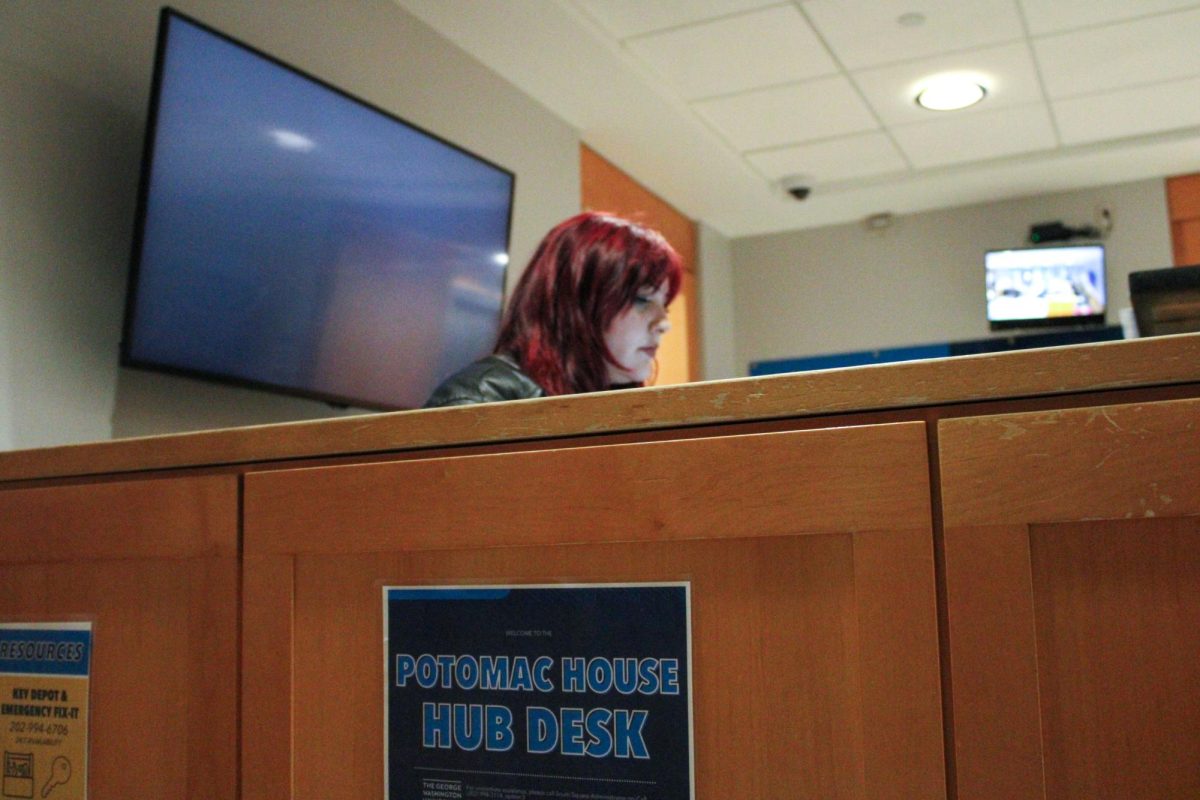When sophomore Ana Rees received her schedule for her Campus Living and Residential Education job on the Mount Vernon Campus in January, she thought there was a mistake.
Rees was listed to only work five hours her first week back for the new semester, a sharp decrease from the weekly hours she expected.
“I got my schedule and I was like, ‘Is this a mistake?’” Rees said. “I almost emailed them asking and then I didn’t. They never explained what was going on until afterward, until after we asked them.”
CLRE officials increased student employees’ wages from $17 to $17.20, reduced students’ maximum weekly hours from 15 to 10 this semester and further cut some student workers’ hours by as much as two-thirds. More than half a dozen students in the positions said they’re now seeking additional employment and hope to reach the maximum allotted hours after officials limited the operation of hub desks to one student employee instead of the previous two per desk last semester.
Kevin Stensberg, the assistant vice provost of student support and residential engagement, said officials conducted a “usage assessment” in the fall and decided to reduce the hub desks’ operation hours from 6 p.m. to midnight to 6 to 10 p.m. They also decided to close half of the 10 hub desks — tables across the Mount Vernon and Foggy Bottom campuses which provide students supplies like board games and cleaning materials.
Stensberg said officials decided to reduce the maximum number of hours the 193 student employees in CLRE could work under the cutback in locations and hours of operation of the hub desks.
“The CLRE team understands that the reduction in the hours may result in some students wanting to explore other work opportunities in addition to or in place of their current job with CLRE,” Stensberg said in an email. “Supervisors are working with these students to work on a transition plan that best fits the needs of that student.”
Stensberg said officials in the Student Employment Office increased student wages by 20 cents per hour this semester to move “gradually” toward the new minimum wage in D.C. set to increase to $17.50 in July.
The CLRE reformed student positions in the fall with the creation of community engagement assistant and adviser positions who live in first-year and upperclassmen residence halls, supporting full-time CLRE employees to put on programming and mediate conversations between roommates.
Rees said she thinks CLRE officials overhired student staff at the start of the academic year and are now cutting hours in an attempt to get employees to quit. She said although student workers could technically only work a maximum of 15 hours last semester, she was able to pick up extra shifts and would sometimes exceed the limit. She said her hours have since dropped to between five and seven per week.
“When I first started it, it was more like ‘I just need any job like I’ll take anything,’ but I really stayed because it was a very comfortable amount of hours and it paid well for not having to do actual, like a lot of actual work, like I could do my homework at the desk and that was nice,” Rees said.
Sophomore Olivia Justice, a student working in 2109 F St., said because she is a federal work-study student employee she depends on the biweekly check and the ability to work the maximum 15 hours she was promised when beginning the job. She added that she pays for her own tuition outside of what she gets from financial aid and is responsible for paying personal expenses like groceries, transportation, books and organization dues.
Justice said she now works only about four hours a week, which is not enough to support her and make the CLRE job worth her time. She said CLRE officials did not consider students’ feelings in their email announcing the change in January, or offer the opportunity for students to share their thoughts and concerns on the hour cuts.
“It’s absolutely ridiculous that an email was sent with no sympathy, with no regard, with no consequences for any of us student employees, FWS employees who genuinely depend on this biweekly check,” Justice said.
Joanna Perez, a junior who works in The Dakota, said her community coordinator provided her with a list of tasks, like cleaning and helping write the weekly emails that go out to residence halls to help her and other student workers earn more hours. Despite the extra tasks, Perez is searching for a second job because the money she earns from her shifts isn’t enough to support herself.
“I’m trying to look for another job because I don’t think that’s enough for me personally,” Perez said. “Especially, you know, I’m buying my own groceries. I’ve got to afford my own expenses.”
A student working in Mitchell Hall — who requested to stay anonymous in fear of “backlash from management” because they want to be rehired next year — said as a non-FWS student, they have seen a noticeable cut in their biweekly paycheck, which has diminished the amount of money they are able to put toward groceries and overall savings each week. They said they now struggle to “find motivation” to continue working with CLRE with the few hours per week they receive.
“It’s a huge bummer and it’s definitely made it very difficult for me to want to continue doing this job,” the student said. “It’s made it very difficult for me to recommend CLRE as a resource for students and as a potential employer for students. It’s just completely dehumanized me as an employee and everyone else that works here.”





